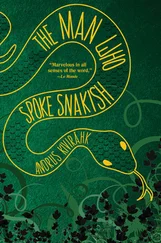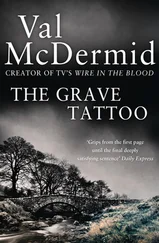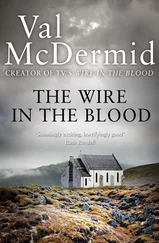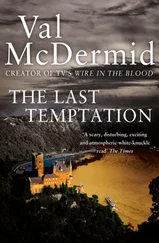MAJ SJÖWALL AND
PER WAHLÖÖ
The Man Who Went Up in Smoke
Translated from the Swedish by Joan Tate

4th Estate
An imprint of HarperCollins Publishers 1 London Bridge Street London SE1 9GF
www.4thEstate.co.uk
This ebook first published by Harper Perennial in 2006
This 4th Estate edition published in 2016
This translation first published by Random House Inc, New York, in 1969
Originally published in Stockholm, Sweden,
by P. A. Norstedt & Soners Forlag
Copyright text © Maj Sjöwall and Per Wahlöö 1966
Copyright introduction © Val McDermid 2006
Cover photograph © Shutterstock
PS Section © Richard Shephard 2006
PS™ is a trademark of HarperCollins Publishers Ltd
Maj Sjöwall and Per Wahlöö assert the moral right to be identified
as the authors of this work.
A catalogue record for this book is available from the British Library
This novel is entirely a work of fiction. The names, characters and incidents portrayed in it are the work of the author's imagination. Any resemblance to actual persons living or dead, events or localities is entirely coincidental.
All rights reserved under International and Pan-American Copyright Conventions. By payment of the required fees, you have been granted the non-exclusive, non-transferable right to access and read the text of this e-book on-screen. No part of this text may be reproduced, transmitted, down-loaded, decompiled, reverse engineered, or stored in or introduced into any information storage and retrieval system, in any form or by any means, whether electronic or mechanical, now known or hereinafter invented, without the express written permission of HarperCollins.
Source ISBN: 9780007439126
Ebook Edition © 1966 ISBN: 9780007323555
Version: 2018-05-17
From the reviews of the Martin Beck series:
‘First class’
Daily Telegraph
‘One of the most authentic, gripping and profound collections of police procedurals ever accomplished’
Michael Connelly
‘Hauntingly effective storytelling’
New York Times
‘There's just no question about it: the reigning King and Queen of mystery fiction are Maj Sjöwall and her husband Per Wahlöö’
The National Observer
‘Sjöwall/Wahlöö are the best writers of police procedural in the world’
Birmingham Post
Title Page
Copyright
Praise
Introduction
Chapter 1
Chapter 2
Chapter 3
Chapter 4
Chapter 5
Chapter 6
Chapter 7
Chapter 8
Chapter 9
Chapter 10
Chapter 11
Chapter 12
Chapter 13
Chapter 14
Chapter 15
Chapter 16
Chapter 17
Chapter 18
Chapter 19
Chapter 20
Chapter 21
Chapter 22
Chapter 23
Chapter 24
Chapter 25
Chapter 26
Chapter 27
Chapter 28
Chapter 29
Chapter 30
About the Authors
Also by Maj Sjöwall and Per Wahlöö
About the Publisher
I first went to America in 1979. I had to buy another holdall to bring home the books. Discovering dedicated mystery booksellers was a bit like going to heaven without having to die first. There were so many crime writers whose books were available in the US only – ironically, some of them British – and in those pre-Internet days, the only apparent way to acquire them was physically to go there and buy them. Which I did. In industrial quantities.
Among the books in the holdall were ten paperbacks in the black livery of Vintage Press. They comprised a decalogue of crime novels written by the Swedish husband-and-wife team of Maj Sjöwall and Per Wahlöö. They'd been on my must-read list since I'd read about them in Julian Symonds' definitive overview of the genre, Bloody Murder. He said, ‘they might come under the heading of “Police Novels” except that the authors are more interested in the philosophical implications of crime than in straightforward police routine … [They] are markedly individual and very good’. I suppose it was a bit of a gamble to buy all ten on that recommendation alone. But it's a gamble I've never regretted.
Reading the Martin Beck series with twenty-first-century eyes, it's almost impossible to grasp how revolutionary they felt when they first appeared almost forty years ago. So many of the elements that have become integral to the point of cliché in the police procedural sub-genre started life in these ten novels. So many of the features we take for granted and sigh over in a world-weary way have their roots in the work of a couple of journalists turned crime writers.
In the mid-sixties, when Sjöwall and Wahlöö started writing, there were plenty of examples of the police procedural novel around. Going back to the golden age of the 1930s, Ngaio Marsh's Inspector Alleyn and Freeman Wills Crofts' Inspector French were among those who led the way, but they were followed in a steady stream by the likes of J. J. Marric's Gideon and, on the other side of the Atlantic, Ed McBain.
What these examples of the roman policier have in common is that they are wedded to the status quo. Their world is divided into black and white, good and evil, right and wrong, with no uncomfortable intervening grey area. Bad men – and very occasionally bad women – do bad things and thus are bound to come to a bad end. Their police officers are honourable, upstanding family men who believe in the rule of law and the delivery of justice by their own hands. A bent cop is almost unthinkable; an incompetent one only a little less so.
And while the star of the series may have a sidekick, invariably less gifted and often more brawny, little more than lip service is paid to the rest of the squad, whose legwork goes mostly unrecognized. (McBain later became an exception to this, but in the earlier 87th Precinct novels Steve Carella is invariably centre-stage.) The police procedural was home to a singular hero. There was no room to share the limelight.
The books of Sjöwall and Wahlöö are different. Although they are generally referred to as the Martin Beck novels, they're not really about an individual. They're ensemble pieces.
Beck is not some solo maverick who operates with flagrant disregard for the rules and thinly disguised contempt for the lesser mortals who surround him. Nor is he a phenomenal genius blessed with so extraordinary a talent that mere mortals can only stand back in amazement as he leads them unerringly to the solution to the baffling mystery. He's not glamorous either. Not the scion of some high-society family, not the husband of an acclaimed portrait painter, nor the flamboyant solver of baffling mysteries with an upward flick of a single eyebrow.
No, Martin Beck is none of these things. He's a driven, middle-aged dyspeptic whose marriage slowly disintegrates during the series. Not because of some cataclysmic infidelity or clash of belief systems, but rather because of the quiet desperation that builds between two people who once loved each other but now have nothing in common but their children and their address.
He's also something of an idealist whose job forces him to confront the gulf between what should exist in an ideal world and what exists in actuality. His awareness of that gap colours his life, making him depressed and sometimes fatalistic about whether what he does can ever make any difference.
Читать дальше













